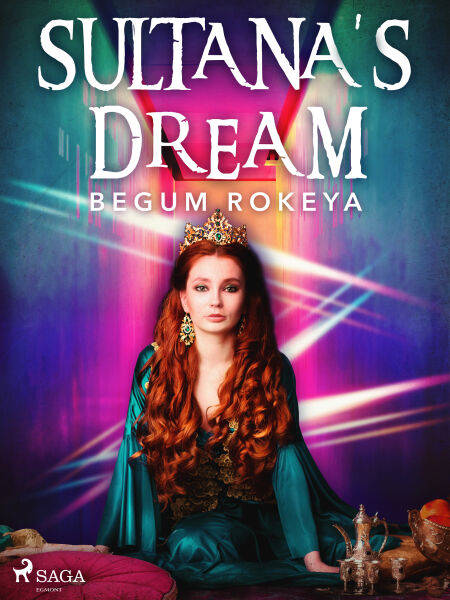
- Afhalen na 1 uur in een winkel met voorraad
- Gratis thuislevering in België vanaf € 30
- Ruim aanbod met 7 miljoen producten
- Afhalen na 1 uur in een winkel met voorraad
- Gratis thuislevering in België vanaf € 30
- Ruim aanbod met 7 miljoen producten
Zoeken
Omschrijving
‘Sultana’s Dream’ is an extraordinarily prescient story set in fictional Ladyland. The narrator, Sultana, falls asleep and is greeted by Sister Sara, who introduces her to the futuristic society she has apparently awakened in.
In this alternate reality, men are shy and timid creatures, while women pioneer scientific breakthroughs, such as solar power and weather control.
A fascinating and thought-provoking tale that leaves the reader to decide whether this is, in fact, a dream or a visit from an unseen future.
Born in Rangpur, Begum Rokeya (1880 – 1932) was an author, political activist, and pioneer of women’s rights in South Asia. While her parents were wealthy, their religious beliefs meant that Rokeya and her sister were deprived of education. However, her brothers, who were both attending school, educated them by night.
Rokeya’s literary career began when she was 22, with the publication of an essay, ‘Thirst’. This was followed up by two books, ‘Matichur’ and ‘Sultana’s Dream’. The latter took the bold step of reversing the roles of the sexes, in order to demonstrate what women are capable of contributing, given the chance. Her other works follow a similar thread, and Rokeya reinforced her beliefs by setting up the first school for Muslim girls.
During her lifetime, she wrote 16 novels, including ‘The Fruit of Emancipation’ and ‘Education Ideals for the Modern Indian Girl’.
In this alternate reality, men are shy and timid creatures, while women pioneer scientific breakthroughs, such as solar power and weather control.
A fascinating and thought-provoking tale that leaves the reader to decide whether this is, in fact, a dream or a visit from an unseen future.
Born in Rangpur, Begum Rokeya (1880 – 1932) was an author, political activist, and pioneer of women’s rights in South Asia. While her parents were wealthy, their religious beliefs meant that Rokeya and her sister were deprived of education. However, her brothers, who were both attending school, educated them by night.
Rokeya’s literary career began when she was 22, with the publication of an essay, ‘Thirst’. This was followed up by two books, ‘Matichur’ and ‘Sultana’s Dream’. The latter took the bold step of reversing the roles of the sexes, in order to demonstrate what women are capable of contributing, given the chance. Her other works follow a similar thread, and Rokeya reinforced her beliefs by setting up the first school for Muslim girls.
During her lifetime, she wrote 16 novels, including ‘The Fruit of Emancipation’ and ‘Education Ideals for the Modern Indian Girl’.
Specificaties
Betrokkenen
- Auteur(s):
- Uitgeverij:
Inhoud
- Aantal bladzijden:
- 62
- Taal:
- Engels
Eigenschappen
- Productcode (EAN):
- 9788728399187
- Verschijningsdatum:
- 18/01/2023
- Uitvoering:
- E-book
- Beveiligd met:
- Digital watermarking
- Formaat:
- ePub

Alleen bij Standaard Boekhandel
+ 1 punten op je klantenkaart van Standaard Boekhandel
Beoordelingen
We publiceren alleen reviews die voldoen aan de voorwaarden voor reviews. Bekijk onze voorwaarden voor reviews.







